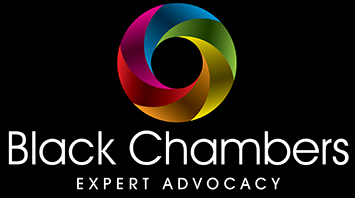Internet Searches by Jurors
February 25, 2015
HMA v Blenkinsop & oths
This was a significant drugs trial which finally concluded on 4th October 2011 with five accused being sentenced to lengthy sentences of imprisonment for importation of cocaine.
The trial first took place in October/November 2011 over 42 days. Towards the end of the trial it transpired that a juror had searched the internet in relation to the client represented by Tony Lenehan and myself, Keith Blenkinsop. Unfortunately that search disclosed that he had been convicted in Spain of analogous offences and had been imprisoned there. As a result of that information coming to light a motion was made for desertion of the trial pro loco et tempore. The Crown opposed this motion but the trial Judge, Judge Murphy, deserted the trial after he personally had interviewed two of the jurors. The interest in this case is how the information came to light and what if anything can be done to prevent this occurring in the future.
After the trial was almost at an end one accused (Harkins) was released from a sentence he had been serving and went out for a drink with one of his co-accused (Elvin). During that, Elvin informed him that about three or four weeks previously one of the female jurors had approached him on the bus and advised him that due to one juror informing the group about Blenkinsop’s previous conviction the jury were likely to find all accused guilty although she was not of that mind. For reasons which are not clear Elvin had not thought it appropriate to bring the matter to the attention of his defence team. However Harkins did and enquiries took place. These were hampered by the fact that the female juror had, in the intervening period, been discharged from the jury through illness. However she was eventually traced and confirmed Elvin’s story. Even after this the Crown were still opposing the desertion. Two jurors were identified as potentially being the one who had looked up Blenkinsop on the internet. After interviewing them the Judge took the view there was no option but to desert the trial.
The juror who alerted Elvin was brought before the court for consideration to be given as to whether or not she was in contempt of court. Eventually no such finding was made. It is interesting to note that without her intervention, wrong or not, there was a significant chance that there would have been a miscarriage of justice which could never have been corrected. Had the jury proceeded to convict, wholly or partly, on the basis of the information obtained from the internet, the law, as it stands, would have prevented any enquiry being made, even if the female juror had come forward post trial.
The other issue is what, if anything can be done by Counsel, or the courts, to prevent such things happening again. At the retrial I asked the trial Judge to direct the jury specifically on the matter with reference to the English case of R v Thompson 2010 EWCA Crim 1623 and to use basically the ideas set out in that case. He did give the jury some directions although did not go as far as Lord Judge suggests in Thompson. It will be a matter for individual judges and for the Counsel in the case but the unrestricted use of the internet is a major problem for us all. Lord Judge seems in Thompson, and in a lecture he delivered subsequently, to be of the view that very clear and direct instructions must be given warning a jury of the consequences of disobeying such a direction. The theory seems to be that by warning all of the jury in this way and directing them that they have a collective responsibility at least one jury member will alert the authorities should a member of the jury seek to introduce such information to the jury room.
It may well be that in any case where there is the likelihood of an internet search being used, Counsel should request that the trial judge direct the jury along the lines of Thompson. I am thinking of cases where the client has a previous conviction which will show up in an internet search or perhaps a case with difficult expert evidence which a jury may seek to investigate themselves.
Brian McConnachie QC
24th October 2011
